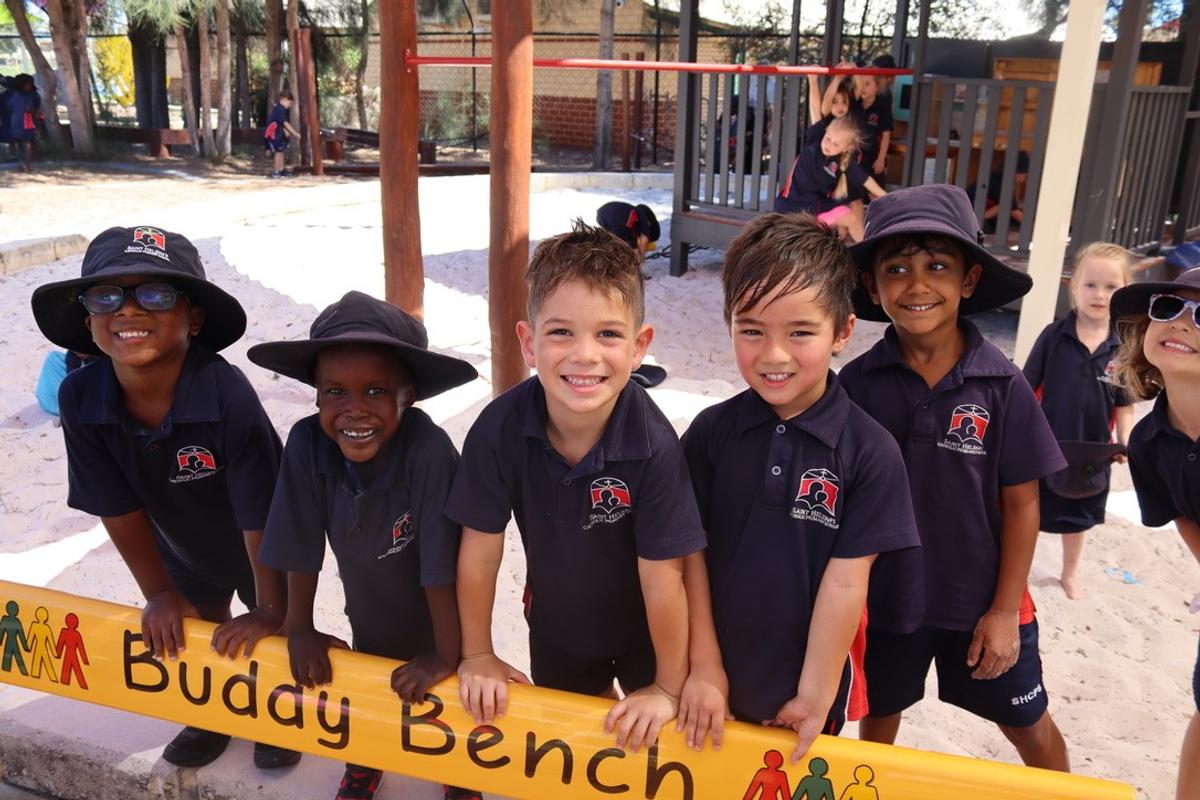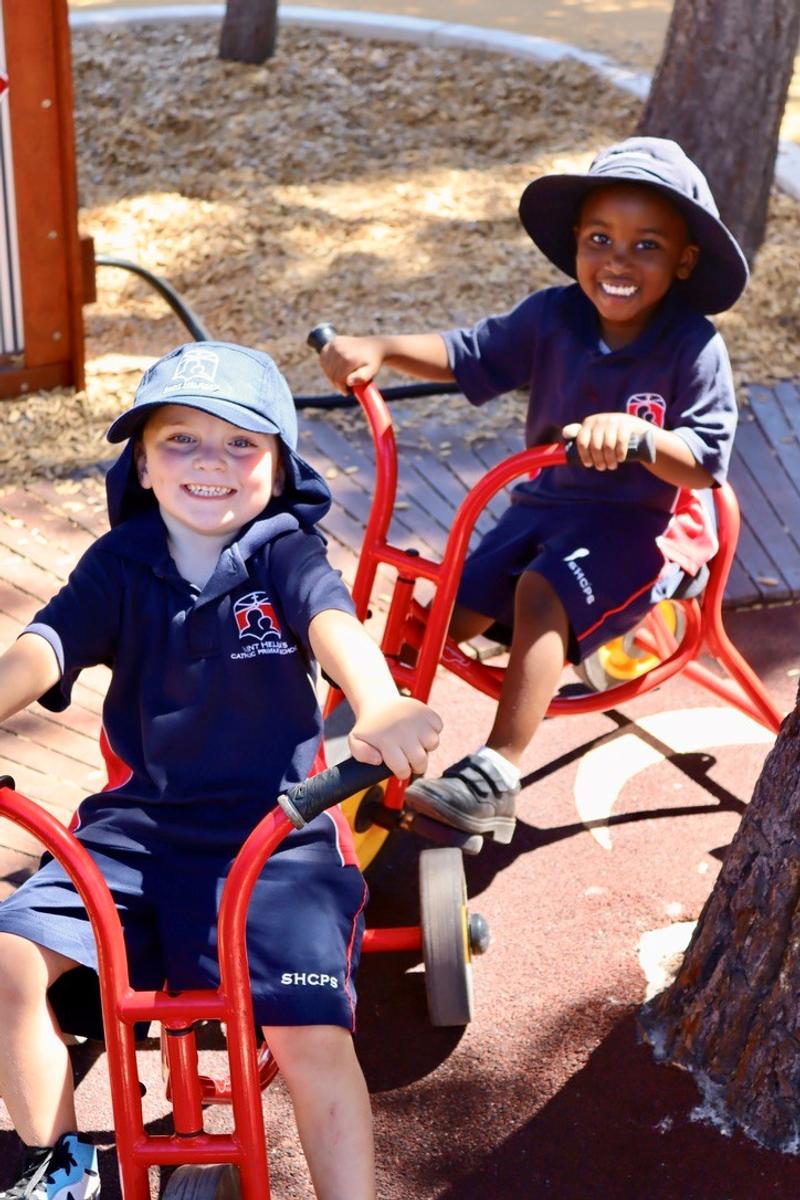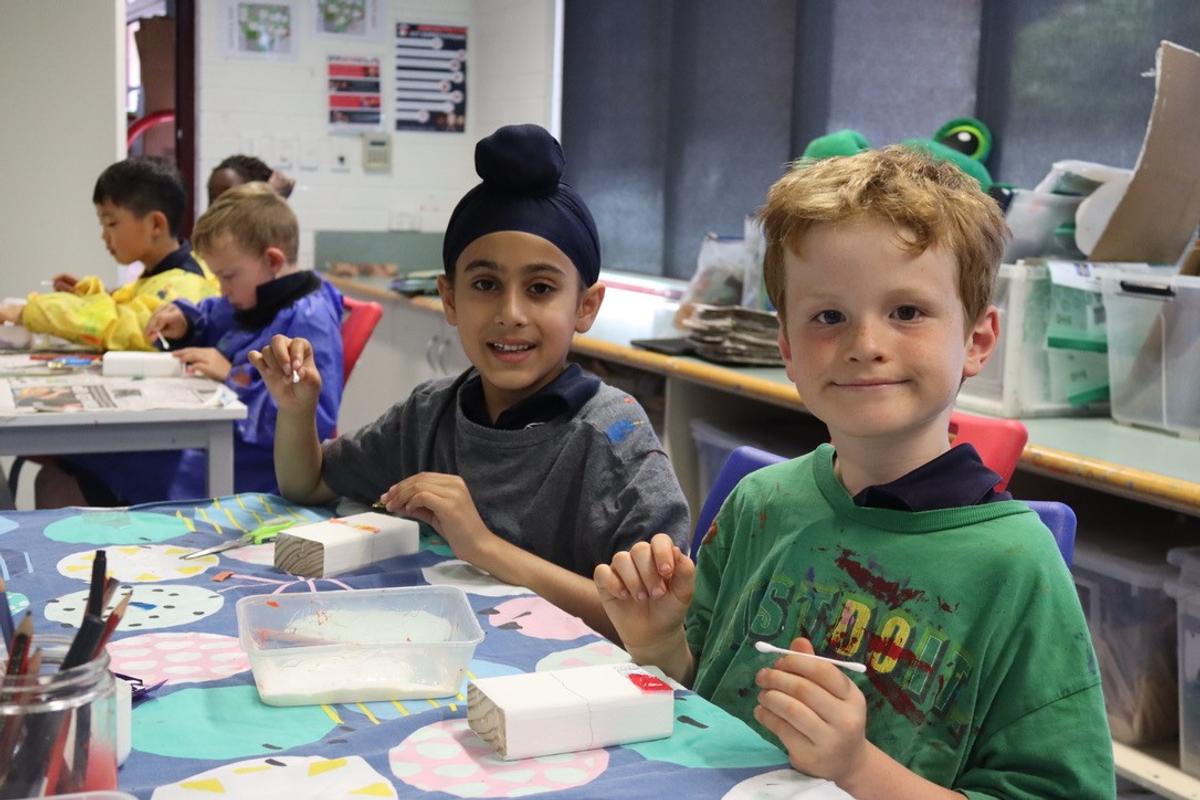Early Childhood News
(Pre-Kindy to Year 2)

Early Childhood News
(Pre-Kindy to Year 2)
We know that boys and girls develop differently, especially in their brains. Boys' brains develop slower, and they have more of the hormone testosterone, which makes them more active and protective. This means boys might struggle more with thinking before they act and following instructions.
How Their Brains Work
Boys often have a harder time using the logical part of their brain. This means they might make quick decisions without thinking about the consequences. This is why boys might get hurt more often or make risky choices. This often comes out in their play, when they might choose to climb structures too high, try to use equipment in a way it is not made to be made (going up a slide…) or even create make believe games involving fighting.
Boys' bodies and brains work hard to manage energy. When they get too stressed, their bodies release a hormone called cortisol. This can make them feel uncomfortable, and one way they deal with it is by moving a lot, sometimes in ways that seem aggressive.
When boys get upset, their brains react differently than girls' brains. Girls usually want to talk right away, but boys' brains tell their bodies to move. This is why boys might take longer to talk about their feelings. Sometimes doing something active with your son, or talking to him whilst he is doing something like kicking a ball, will make him open up and share whats on his mind.
Rough Play
Boys often play rough to connect with others because they can't always express their feelings with words. This type of play, called aggression nurturance, helps them bond with friends and siblings. Boys don't usually hit or shove kids they don't like; they do it to bond and have fun. When boys play rough, they usually don't mean to hurt anyone. Parents should talk to them about limits and the importance of saying sorry if someone gets hurt.
Boys might kick or hit when they can't have something they want. It helps to calmly acknowledge their feelings and set boundaries, like saying, "I know you’re upset, but we don’t have cookies before dinner."
Interested in learning more about how boys interact and why they may appear to act out? Maggie Dent is a West Australian Mum who has written a number of books on parenting. Her website has lots of information available for parents: https://www.maggiedent.com/blog/help-me-stop-my-son-stop-from-hitting-slapping-and-kicking/





